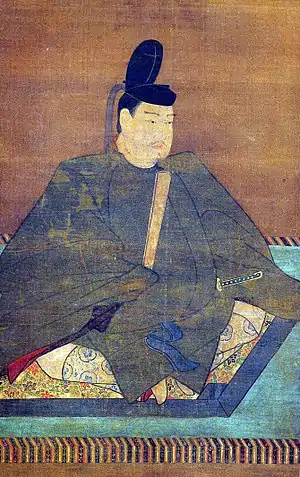724
Year 724 (DCCXXIV) was a leap year starting on Saturday (link will display the full calendar) of the Julian calendar. The denomination 724 for this year has been used since the early medieval period, when the Anno Domini calendar era became the prevalent method in Europe for naming years.
| Millennium: | 1st millennium |
|---|---|
| Centuries: | |
| Decades: | |
| Years: |
| 724 by topic |
|---|
| Leaders |
|
| Categories |
|
| Gregorian calendar | 724 DCCXXIV |
| Ab urbe condita | 1477 |
| Armenian calendar | 173 ԹՎ ՃՀԳ |
| Assyrian calendar | 5474 |
| Balinese saka calendar | 645–646 |
| Bengali calendar | 131 |
| Berber calendar | 1674 |
| Buddhist calendar | 1268 |
| Burmese calendar | 86 |
| Byzantine calendar | 6232–6233 |
| Chinese calendar | 癸亥年 (Water Pig) 3420 or 3360 — to — 甲子年 (Wood Rat) 3421 or 3361 |
| Coptic calendar | 440–441 |
| Discordian calendar | 1890 |
| Ethiopian calendar | 716–717 |
| Hebrew calendar | 4484–4485 |
| Hindu calendars | |
| - Vikram Samvat | 780–781 |
| - Shaka Samvat | 645–646 |
| - Kali Yuga | 3824–3825 |
| Holocene calendar | 10724 |
| Iranian calendar | 102–103 |
| Islamic calendar | 105–106 |
| Japanese calendar | Yōrō 8 / Jinki 1 (神亀元年) |
| Javanese calendar | 617–618 |
| Julian calendar | 724 DCCXXIV |
| Korean calendar | 3057 |
| Minguo calendar | 1188 before ROC 民前1188年 |
| Nanakshahi calendar | −744 |
| Seleucid era | 1035/1036 AG |
| Thai solar calendar | 1266–1267 |
| Tibetan calendar | 阴水猪年 (female Water-Pig) 850 or 469 or −303 — to — 阳木鼠年 (male Wood-Rat) 851 or 470 or −302 |

Emperor Shōmu (701–756)
Events
Europe
- Ragenfrid, ex-mayor of the palace of Neustria, revolts against Charles Martel. He is easily defeated, and Ragenfrid gives up his sons as hostages, in return for being allowed to keep his lands in Anjou.[1]
- Cináed mac Írgalaig, also known as "the one-eyed", becomes High King of Ireland. [2]
Arabian Empire
- January 26 – Caliph Yazid II dies of tuberculosis after a 4-year reign. He is succeeded by his brother Hisham ibn Abd al-Malik, who appoints Khalid al-Qasri as governor of Iraq.
- The Turgesh Khaganate scores a major victory over the Arabs, in the "Day of Thirst" near Khujand (modern Tajikistan).
- A Muslim fleet raids the Byzantine-ruled Balearic Islands, as well as Byzantine Sardinia and Lombard Corsica.[3]
Japan
- March 3 – Empress Genshō abdicates the throne, in favor of her 23-year-old nephew Shōmu. He is the son of the late emperor Monmu, and becomes the 45th monarch of Japan.[4]
Mesoamerica
Architecture
Births
- Dong Jin, Chinese official and general
- Fujiwara no Hamanari, Japanese noble and poet
Deaths
- January 26 – Yazid II, Muslim caliph (b. 687)
- Felix, archbishop of Ravenna
- Fogartach mac Néill, High King of Ireland
- Hababah, concubine singer of Caliph Yazid II.
- Rotrude of Treves, wife of Charles Martel
- Tonyukuk, military leader of the Göktürks (approximate date)
References
- David Nicolle (2008). Poitiers AD 732, Charles Martel turns the Islamic tide (p. 18). ISBN 978-184603-230-1
- Fragmentary Annals of Ireland, FA 178
- David Nicolle (2008). Poitiers AD 732, Charles Martel turns the Islamic tide (p. 41). ISBN 978-184603-230-1
- Ponsonby-Fane, Richard (1959). The Imperial House of Japan, p. 57
- Old, Hughes Oliphant (1998). The reading and preaching of the scriptures in the worship of the Christian church. Wm. Eerdmans, pp. 137–40. ISBN 978-0-8028-4619-8
This article is issued from Wikipedia. The text is licensed under Creative Commons - Attribution - Sharealike. Additional terms may apply for the media files.